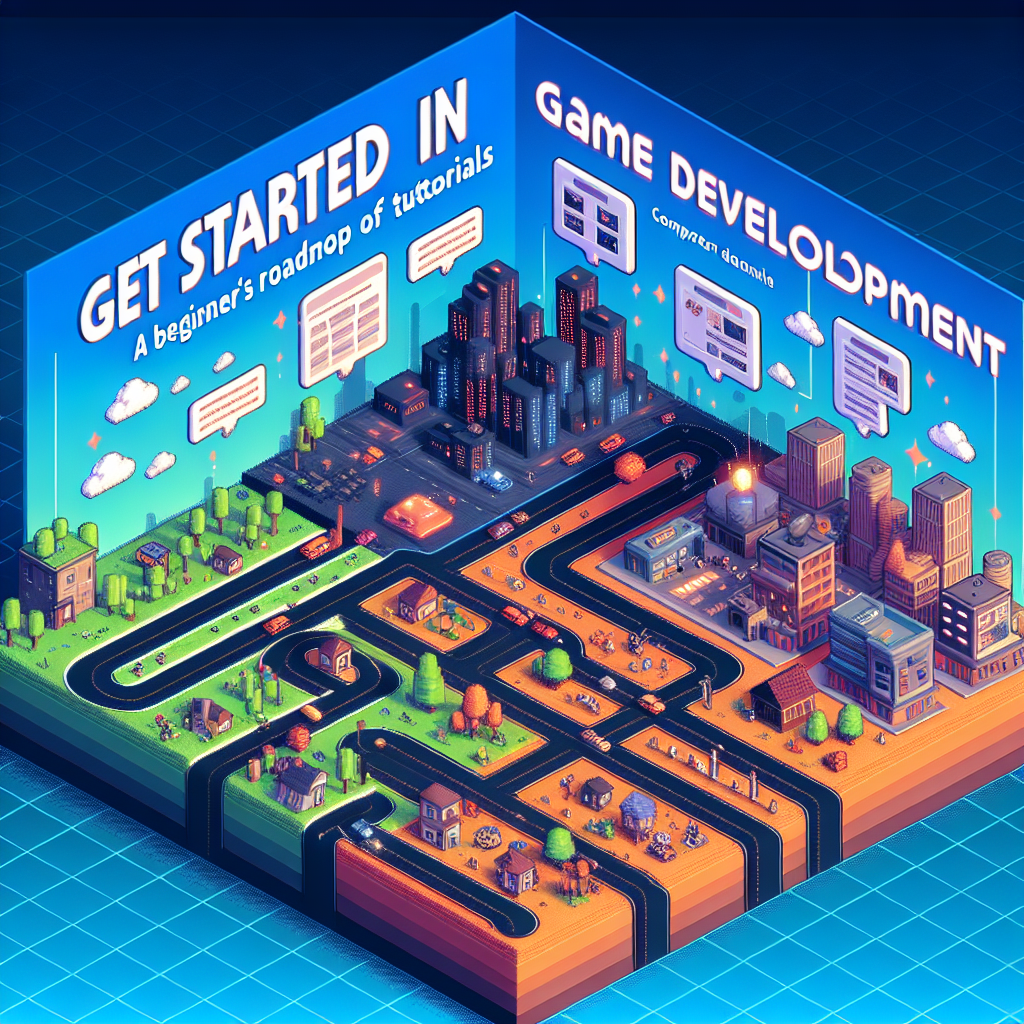Get Started in Game Development: A Beginner’s Roadmap of Tutorials
Game development has become an alluring and dynamic field, attracting enthusiasts from all backgrounds who want to bring their creative visions to life. With the ever-evolving landscape of technology and rich storytelling potential, diving into game development can be rewarding. This beginner’s roadmap aims to guide you through essential concepts, tools, and resources to kickstart your journey into game development.
1. Understanding the Basics
A. What is Game Development?
Game development is the art and science of creating video games. It encompasses various aspects, including game design, programming, art creation, sound design, and testing. Understanding the foundational elements of what makes a game can help you appreciate and navigate through the development process.
B. Choosing Your Path
Decide on the role you want to pursue in game development:
- Game Designer: Focuses on the game concept, story, and gameplay mechanics.
- Programmer: Writes the code that makes the game function.
- Artist: Creates visual assets like characters, environments, and animations.
- Sound Designer: Handles the audio elements, including sound effects and music.
By knowing your interests from the start, you can tailor your learning accordingly.
2. Learning the Fundamentals
A. Choose Your Game Engine
A game engine is a software platform used to build games. Popular choices for beginners include:
- Unity: A versatile and widely used engine great for 2D and 3D games.
- Tutorial Resource: Unity Learn offers comprehensive tutorials for beginners.
- Unreal Engine: Known for high-quality 3D graphics and complex projects.
- Tutorial Resource: The Unreal Online Learning platform provides free courses.
- Godot: An open-source engine that’s beginner-friendly, especially for 2D games.
- Tutorial Resource: Godot Documentation.
B. Learn Programming
Understanding programming is crucial for most roles in game development:
- C# for Unity: Start with simple tutorials on Codecademy or Microsoft Learn.
- C++ for Unreal Engine: Resources like LearnCpp are excellent starting points.
- GDScript for Godot: Explore the official GDScript documentation.
3. Building Your First Game
A. Follow Step-by-Step Tutorials
Creating a simple game can solidify your understanding. Here are some beginner-friendly projects:
-
Flappy Bird Clone:
- Unity: Complete Flappy Bird Clone by GameDev.tv.
- Godot: Flappy Bird Tutorial.
- Breakout Game:
- Unreal Engine: Unreal Breakout Tutorial.
- Godot: Creating Breakout Game in Godot.
B. Experiment with Game Mechanics
Once you create a basic game, try modifying mechanics, adding levels, or exploring different genres. This experimentation will help you learn problem-solving skills essential for game development.
4. Expanding Your Skills
A. Dive Deeper into Game Design
Understanding game mechanics and player experience can enhance your projects significantly:
- Books: "The Art of Game Design: A Book of Lenses" by Jesse Schell.
- Online Courses: Platforms like Coursera and Udemy offer game design courses tailored for beginners.
B. Join a Community
Many online platforms host game development communities where you can learn, share your projects, and seek feedback. Consider joining:
- GameDev.net: A robust forum for game developers.
- Facebook Groups: Search for game development groups or local meetups.
- Discord Servers: Many game dev Discords offer channels for advice, collaboration, and showcasing work.
5. Build Your Portfolio
A. Showcase Your Work
As you create projects, compile them into a portfolio. Use platforms like:
- GitHub: Host your code and demonstrate your programming skills.
- Itch.io: Publish your games and gather user feedback.
- Portfolio Websites: Consider building a personal website on platforms like Wix or WordPress to showcase your projects and skills.
B. Participate in Game Jams
Game jams are events where developers create a game in a short period; they are great for building skills and networking. Platforms such as itch.io frequently host game jams.
Conclusion
Game development is a multifaceted field filled with opportunities for creativity and innovation. By following this roadmap, you will gain the knowledge and skills necessary to build your first games and establish yourself in the community. Remember that practice is key—stay curious, keep experimenting, and most importantly, enjoy the process of creating your own games!




